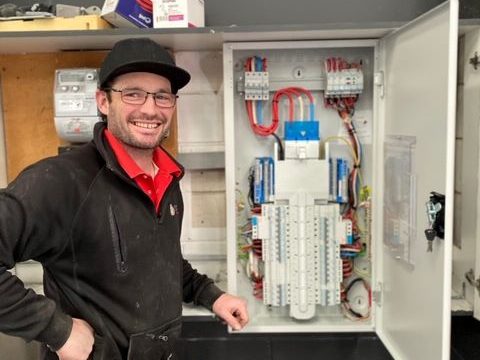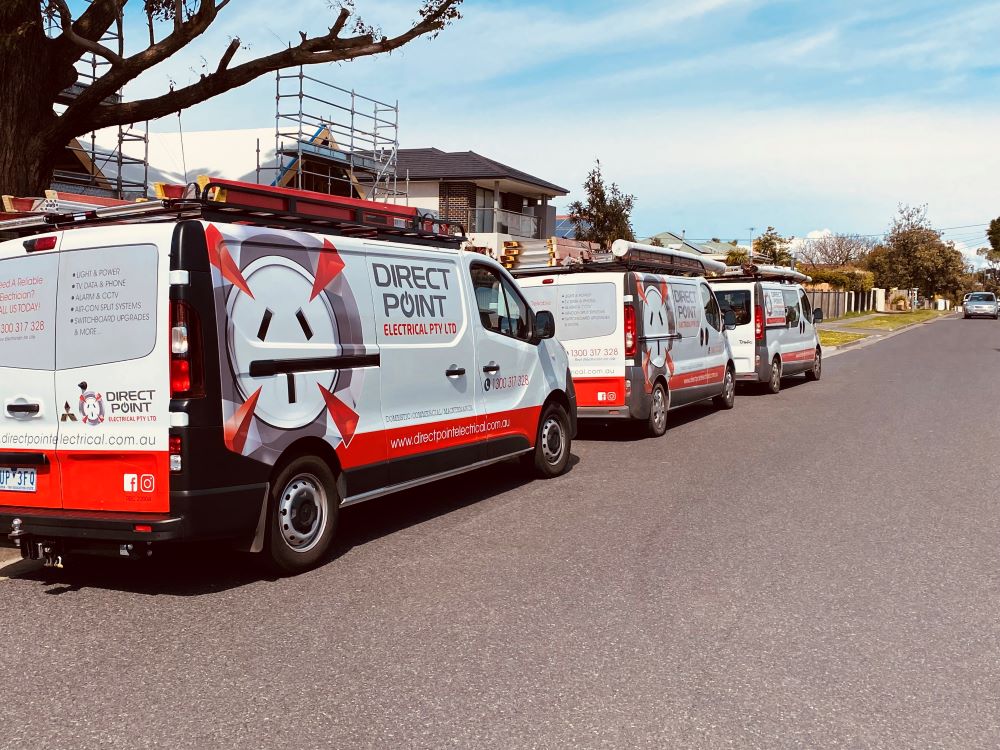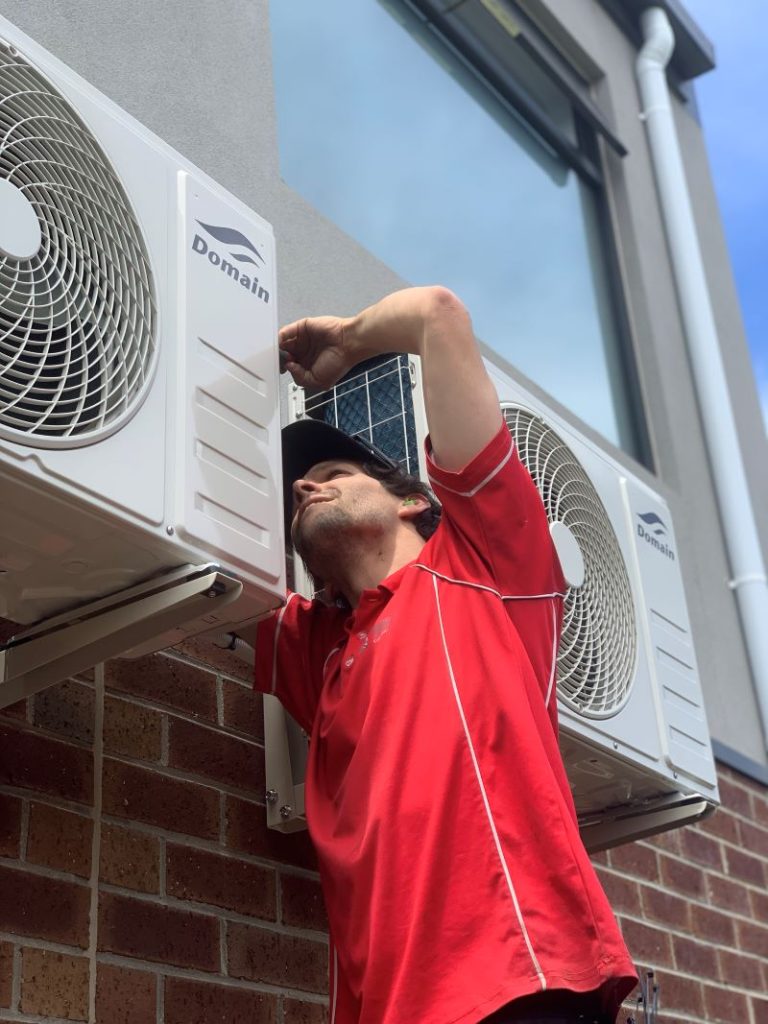Understanding the Vital Importance of Conducting Comprehensive Electrical Safety Inspections in Your Home
An electrical safety inspection constitutes a thorough evaluation of your home’s wiring, switchboard, outlets, and various safety devices. This essential assessment ensures compliance with the Australian Standard AS/NZS 3000 and identifies potential dangers, including overloaded circuits, faulty wiring, or missing safety switches. Conducted by qualified electricians, these inspections are crucial for averting hazards such as electric shock, devastating fires, and damage to your valuable appliances, thereby safeguarding your home and family.

Essential Electrical Safety Inspections That Homeowners Must Prioritise for Maximum Protection
Many homeowners erroneously believe that their home’s electrical system is in satisfactory condition until a major issue presents itself. However, how can you accurately verify that your wiring is not deteriorating behind the walls? Are you fully confident that your switchboard is operating correctly and not at risk of overheating? Regular electrical safety inspections are not merely a precaution; they are a fundamental necessity, particularly in older neighbourhoods like Narre Warren and Rowville. Given that numerous homes in these areas are over 40 years old, the original switchboards are often outdated and may require replacement. Whether you are buying, selling, renovating, or simply haven’t had an inspection in years, understanding the inspection process and its significance is vital for ensuring your home’s safety and functionality.
Comprehensive Overview of What a Thorough Electrical Safety Inspection Involves
An electrical safety inspection encompasses an extensive review of your property’s entire electrical infrastructure. A certified electrician will assess the condition, compliance, and operational efficiency of:
- Wiring and cable insulation to ensure they meet current safety standards
- Power outlets and light switches for functionality and safety
- Switchboard and circuit breakers for proper operation and efficiency
- Residual Current Devices (RCDs) or safety switches to prevent electrocution
- Earthing and bonding systems to ensure safe electrical flow
- Appliance connections and load capacity for compatibility with modern devices
- Smoke alarm wiring (if hardwired) to guarantee reliable fire safety
- External weatherproofing of outdoor circuits to protect against environmental damage
At Direct Point Electrical, we meticulously adhere to all relevant legislation and guidelines, including the AS/NZS 3000:2018 Wiring Rules, Energy Safe Victoria regulations, and Victorian Rental Tenancy Regulations, ensuring that your home remains safe and compliant with current safety standards.
The Critical Importance of Electrical Inspections for Older Homes
Residences constructed before 1990 often utilised obsolete wiring methods, such as rubber-insulated or aluminium cabling. These materials can deteriorate over time, particularly in regions exposed to heat or moisture. If your home has not undergone rewiring or a safety inspection in over 20 years, scheduling a safety inspection is absolutely essential. We frequently encounter significant issues, including:
- Non-earthed outlets, which pose serious safety risks
- Oversized fuses, potentially leading to electrical fires
- Lack of smoke alarms, compromising fire safety
- Circuits without RCDs, increasing the risk of electrocution
- Undersized cabling unsuitable for modern electrical loads
These hazards represent substantial risks that can endanger your home and personal safety, underscoring the necessity of timely inspections to ensure compliance and safety.
Guidelines for Scheduling Your Electrical Inspection at the Right Time
- Before purchasing or selling a property: This is often a requirement from lenders and is a recommended step for buyer diligence.
- Prior to renovations or significant appliance upgrades: Ensuring electrical safety before making modifications is critical.
- After experiencing flood, storm, or fire damage: Prompt inspections help uncover any new hazards that may have emerged.
- If your home is over 25 years old: Regular checks are essential for older properties to ensure ongoing safety.
- As a landlord, during the preparation of a rental property: Compliance and safety checks are paramount to protect your tenants.
Since March 2021, landlords in Victoria are mandated to conduct electrical safety checks every 2 years, in accordance with the Residential Tenancies Regulations 2021.
For additional information, please visit: Victorian Government Consumer Affairs.
Detailed Breakdown of the Electrical Safety Inspection Process
Our licensed electricians conduct a meticulous walkthrough and evaluation of all accessible electrical systems, which includes:
- Testing every socket and switch for faults to ensure reliability
- Checking polarity and voltage across all points for safety compliance
- Verifying the presence and effectiveness of RCDs to safeguard against shocks
- Inspecting the switchboard layout, its protection, and labelling for clarity
- Utilising thermal imaging to identify overheating components (where necessary)
- Conducting earth loop impedance testing to ensure proper earthing
- Documenting any illegal or DIY wiring practices that may pose risks
Upon completion of the inspection, you will receive a detailed written report that outlines:
- Existing hazards that were identified during the inspection
- Compliance status in relation to current safety standards
- Urgent repair needs (if any) that must be addressed
- Recommended upgrades to enhance safety
- Options available for improving your home’s electrical safety
Moreover, we provide a Certificate of Electrical Safety (COES) for any rectification work carried out during the inspection, ensuring peace of mind for homeowners.
Steps to Follow if Your Home Fails the Electrical Inspection
There’s no reason to panic. Many homes we assess only require minor improvements, such as adding an RCD, replacing a few worn outlets, or addressing an overloaded circuit. If we identify significant issues (for example, non-earthed wiring or an outdated switchboard), we will prioritise safety risks and provide you with a clear, fixed quote for necessary repairs. For further insights on how we approach updates, please visit our electrical services page.
Understanding the Expected Duration of an Electrical Safety Inspection
The duration of most inspections typically varies from 1.5 to 2.5 hours, depending on the size and accessibility of the property. If you reside in a double-storey or split-level home, or possess extensive outdoor power systems, the duration may differ slightly to ensure a thorough and comprehensive assessment is conducted.
Financial Benefits of Investing in Regular Electrical Safety Inspections
Indeed, neglecting to identify issues such as leaking current, loose neutral connections, or improperly loaded circuits can lead to significant consequences, including:
- Increased power bills due to inefficiencies
- Shortened lifespan of your appliances as they operate under stress
- Risk of costly repairs if problems remain undetected
Furthermore, identifying faults early shields you from potential financial burdens and legal repercussions associated with an electrical fire or injury claims, which is particularly crucial if you are a landlord.
Frequently Asked Questions About Electrical Safety Inspections
What distinguishes a safety inspection from an energy audit?
A safety inspection concentrates on identifying hazards and ensuring compliance with safety codes, while an energy audit evaluates efficiency and provides recommendations for reducing energy consumption.
Should I turn off the power during the inspection?
It is not always necessary to turn off the power. Some tests may require brief disconnections, but the majority of the inspection can be conducted with the power on to maintain functionality.
Am I liable for fines if I neglect safety checks?
If you are a landlord, the answer is affirmative. Under the Residential Tenancies Act, failing to perform bi-annual safety checks can result in fines or complications with rental listings, which could have serious implications.
Is a safety inspection required if I have solar panels installed?
Yes, a safety inspection is imperative. Solar systems comprise additional components that require testing, such as isolators, inverters, and export limits, all of which must conform to safety standards.
Can DIY electrical work adversely affect my inspection results?
It certainly can. Any non-compliant or unlicensed modifications must be rectified before we can issue a safety clearance, making professional oversight crucial for safety.
Your Reliable Local Electrician for Comprehensive Electrical Safety Inspections
Investing in electrical safety inspections is among the most critical and cost-effective protective measures for your home. These inspections can prevent tragic incidents, and if your residence is older, has undergone recent renovations, or hasn’t been professionally assessed in years, now is the perfect time to take proactive steps to ensure safety.
Contact Direct Point Electrical today to schedule your professional inspection and secure your home’s electrical safety.
Dependable Local Electricians You Can Trust for Your Electrical Needs
Electrical Safety Inspections Explained: What Melbourne Homeowners Must Know
The Article: Electrical Safety Inspections: Essential Guide for Melbourne Homeowners first appeared on https://writebuff.com
The Article Essential Guide to Electrical Safety Inspections for Melbourne Homeowners Was Found On https://limitsofstrategy.com




